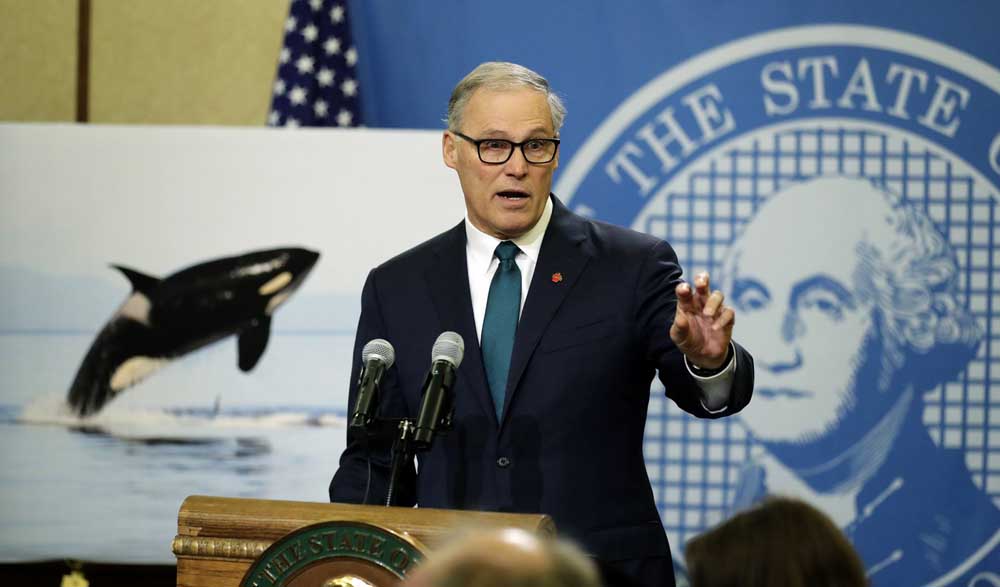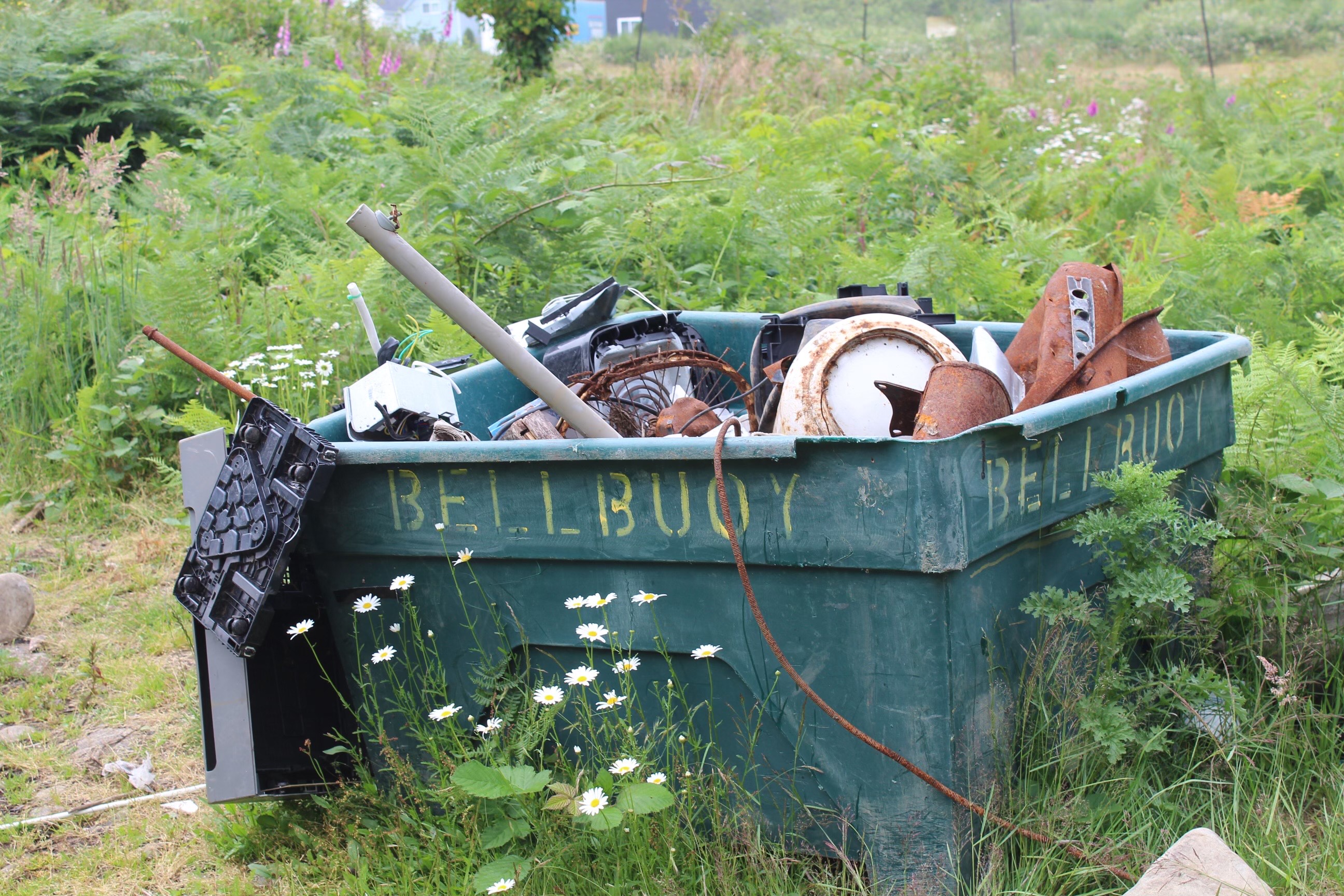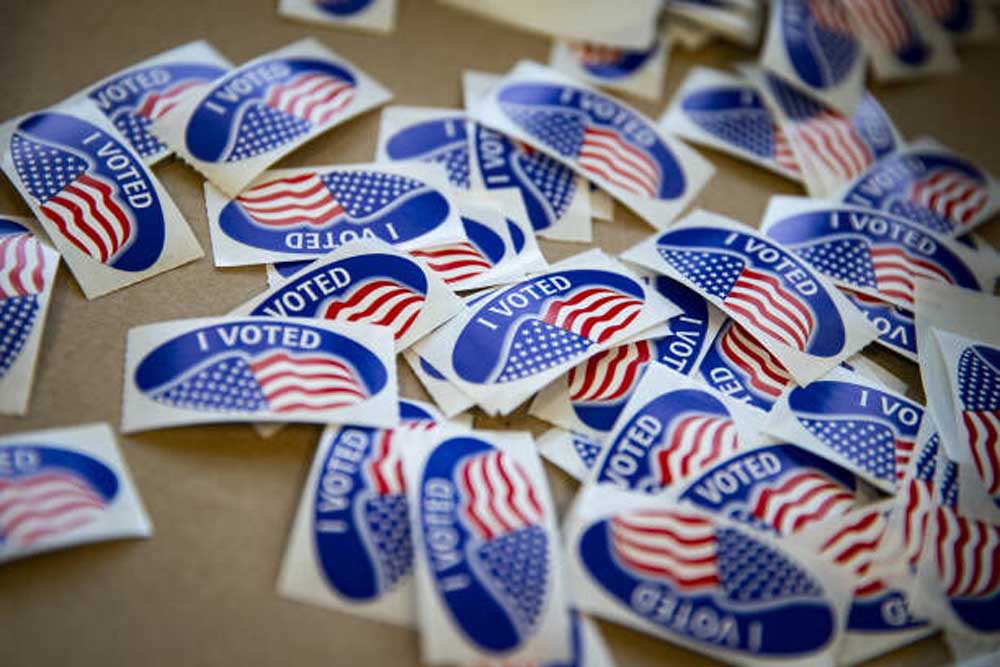Inslee offers pardons for thousands with pot convictions
Published 10:30 am Friday, January 4, 2019

- Washington state Gov. Jay Inslee will offer pardons to thousands of people with misdemeanor marijuana convictions.
Washington state Gov. Jay Inslee will offer pardons to thousands of people with misdemeanor marijuana convictions, in an effort to help them move on from minor criminal records that can hinder housing and job prospects.
Under the plan, Inslee will pardon anyone who has an otherwise clean criminal record but with a sole conviction as an adult for misdemeanor possession of marijuana in Washington state.
Such a conviction must have occurred under state law, not a local ordinance, between Jan. 1, 1998, and Dec. 5, 2012, the effective date of Washington’s voter-approved Initiative 502, which legalized marijuana possession for users age 21 and older. The governor’s office estimates 3,500 people will be eligible for the pardons under its criteria.
Inslee announced his plan, called the Marijuana Justice Initiative, this morning in SeaTac at the Washington State Cannabis Summit, an annual conference sponsored by the legal marijuana industry.
“We shouldn’t be punishing people for something that is no longer illegal behavior in the state of Washington,” Inslee said at the event. He said he believes there is broad public support for the expedited pardon process.
When running for governor as a Democrat in 2012, Inslee opposed I-502, the marijuana-legalization measure. But he has since grown boosterish about the state’s marijuana trade, boasting to talk-show host Bill Maher last year that “we’ve got the best weed in the United States of America.”
Sheri Sawyer, a senior policy adviser to the governor, said Inslee’s pardon plan was motivated in part by the disproportionate impact of drug convictions on people of color.
Persons seeking a pardon can apply by filling out a simple petition form on the governor’s office’s website.
The new pardon process will allow applicants to skip the usual step of making a request to the state’s Clemency and Pardons Board, which typically reviews requests and makes recommendations to the governor, said Tip Wonhoff, the governor’s deputy general counsel.
For people granted pardons, the governor’s office will ask the Washington State Patrol to remove those convictions from the criminal-history reports that are available to the public, though the records will remain available to law enforcement, according to a summary of the pardon plan provided by the governor’s office. Records also will remain in court files unless petitioners successfully petition to have them vacated by the court which imposed the sentence.
The pardon announcement comes amid Inslee’s well-publicized explorations of a 2020 presidential run. While relatively unknown in the field of potential Democratic contenders, Inslee has formed a federal political-action committee and garnered attention for making climate change the centerpiece of his potential national campaign. Later this month, Inslee plans a trip to New Hampshire, which holds the first presidential primary.
The pardons to be offered by Inslee are limited to a relatively small group of people, in part because each pardon application must be individually reviewed by the governor’s office. However, Inslee’s advisers said he also supports more sweeping legislation that would allow anyone with misdemeanor adult marijuana-possession convictions to have them removed from their records.
A bill proposed in 2017 by state Rep. Joe Fitzgibbon, D-Burien, would have required sentencing courts to grant any person’s request to vacate such convictions. The proposal received a hearing but did not advance in the Legislature.
Seattle has taken action to expunge old marijuana records. After a request by City Attorney Pete Holmes, Seattle Municipal Court judges last year moved to vacate convictions and dismiss charges for as many as 542 people prosecuted for marijuana possession between 1996 and 2010, when Holmes’ office ceased prosecuting marijuana possession.









